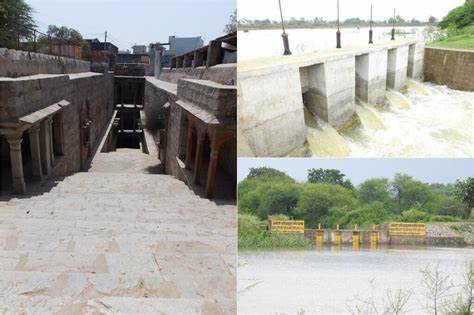
Introduction
India’s small-scale artisanal industries play a crucial role in the nation’s economy, offering unique products that reflect the rich cultural heritage of diverse regions. These industries, ranging from textile weaving and pottery making to food processing and metal crafting, are often family-run businesses in rural areas. While these industries contribute significantly to local employment and the preservation of traditional skills, they face several challenges, particularly when it comes to water management. Reliable access to water is vital for many of these processes, but irregular water supply, climate change, and over-exploitation of groundwater resources present significant obstacles. To address these issues, effective water storage solutions are critical to ensuring the sustainability and growth of these industries.
The Role of Water in Artisanal Production
Water is an essential component in various artisanal processes. In the textile industry, water is used for dyeing, washing, and rinsing fabrics. For pottery makers, water is needed for shaping the clay and keeping it workable. In the food processing sector, especially in traditional grinding and juicing, water plays an integral role. Moreover, industries such as metalworking and stone carving rely on water for cooling and washing. As a result, the lack of consistent access to water can hinder production, lead to inefficiencies, and even cause disruptions in business operations. With the added challenges posed by climate change, erratic rainfall patterns, and the depletion of groundwater resources, the importance of reliable water storage systems for small-scale industries cannot be overstated. An appropriate water storage solution can mitigate these challenges, ensure continuity in production, and improve the overall efficiency of these industries.
Rainwater Harvesting: A Sustainable Solution
One of the most promising and sustainable water storage solutions for India’s small-scale industries is rainwater harvesting. India experiences a significant amount of rainfall during the monsoon season, but much of it goes uncollected, contributing to water scarcity during the dry months. Rainwater harvesting allows businesses to capture and store this rainwater, making it available for use throughout the year.
By installing simple yet effective rainwater harvesting systems, such as rooftop collection systems with storage tanks, small industries can collect rainwater during the monsoon season and use it for various production processes. This solution is relatively low-cost, scalable, and environmentally friendly. Additionally, rainwater is often of higher quality than groundwater, which may be contaminated or saline, making it more suitable for processes such as dyeing, pottery making, and food processing.
Water Recycling and Filtration
Water recycling is another key solution for small-scale artisanal industries that use large amounts of water in their processes. Industries such as textile dyeing, food processing, and metalworking often discharge large quantities of wastewater that contain dyes, chemicals, or other contaminants. By installing water filtration and recycling systems, businesses can treat and purify this water, allowing it to be reused in production.
Advanced filtration technologies, such as reverse osmosis or activated carbon filters, can remove impurities from wastewater, making it suitable for reuse. This not only reduces the amount of fresh water required but also minimizes the environmental impact of wastewater discharge. Water recycling systems can be designed to match the specific needs of different industries, ensuring that water is used more efficiently and waste is minimized.
Conclusion
Water scarcity poses a serious challenge to India’s small-scale artisanal industries, but innovative and sustainable water storage solutions can help mitigate these issues. Rainwater harvesting, underground water storage, water recycling, and community-based water management are all viable options that can ensure these industries have consistent access to the water they need. By adopting these solutions, small-scale businesses can not only improve their production processes but also contribute to broader environmental sustainability efforts. Ultimately, these water storage solutions will help preserve India’s artisanal heritage while supporting economic growth and community development.


